Personality Type Six
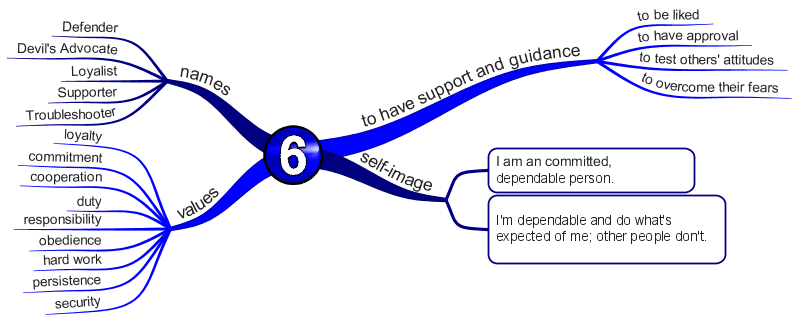
Overview
Sixes like to see themselves as committed and dependable people. Sixes often doubt their own judgement and sense of inner guidance. As a result, they look for support and guidance outside themselves. Sixes seek direction and reassurance from their support systems to reduce their doubts and insecurity.
Sixes seek support systems through people (parent, teacher, mentor, friends), a belief system (political, philosophical, religious), an institution (the law, the military, a company, a union, the family), or other affiliations (sports team, self-help book, traditions, rules, routines). All of these sources provide the Six with a sense of stability and guidance. The more support systems the Six has, the more secure she will feel.

Sixes are wary about blindly following the rules or guidance they receive. Sixes feel the need to test it, to question it. Sixes want certainty and want to make sure that the decisions they make are completely consistent with all of their support systems and authorities. Sixes depend on their support systems for a sense of confidence, but sometimes they desire to go their own way to assert their independence. Much of the struggle of the Six is spent trying to find autonomy -- through themselves and through others.
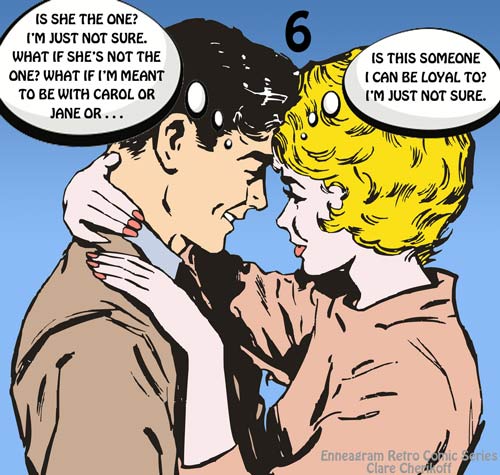
Average
Average Sixes see themselves as the responsible implementer. They believe that their commitment (to their friends, their faith, their authority figure, etc.) will result in increased mutual support and security. Their hard work will earn them the support of others. Sixes search for people and systems in which they can trust and in which they feel supported. They strengthen those alliances and friendships and work hard for them.

Average Sixes like structure and clear expectations. These things give Sixes a sense of confidence that they are doing the right thing. Sixes are attracted to jobs with clear guidelines (accounting, science, computer science, law, etc.).
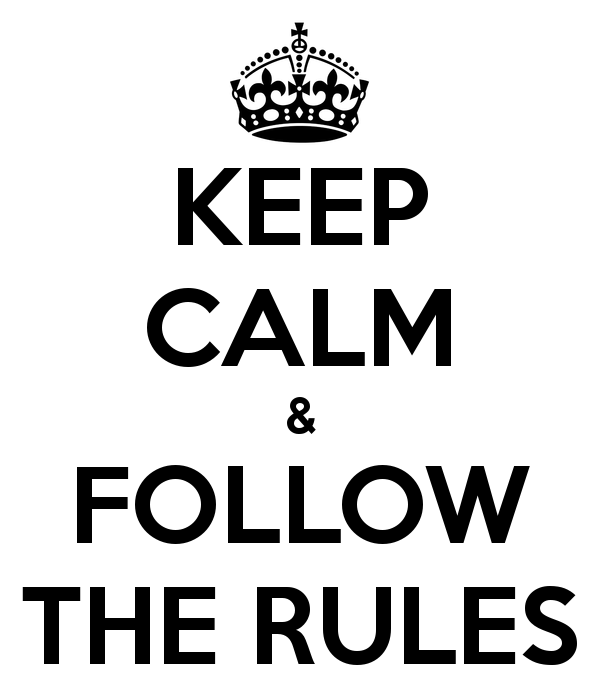
Average Sixes are usually more confident in their beliefs than in themselves. They follow the rules and do what they're supposed to do. Average Sixes solicit input from those they trust and often think about what advice their friends would offer. Because they seek many sources of counsel, conflicting opinions increases self-doubt, which may lead to indecision and procrastination.

Different guidance from different sources leads to anxiety and strong emotional reactions. In one moment they can go from being confident, loyal and believing to being fearful, rebellious, and doubting. Their level of confidence depends on how much trust they feel.
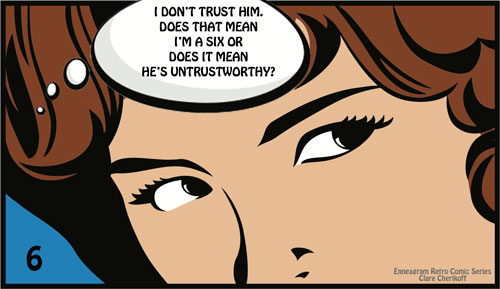
Sixes want to show their loyalty by following their trusted advisors. But, not wanting to completely lose their independence, Sixes sometimes the feel to need to make their own decision. Sixes feel they need to walk a fine line: if they assert themselves too strongly, they risk losing their authority's support. Challenging their authority is also a way to test the authority's loyalty toward the Six.
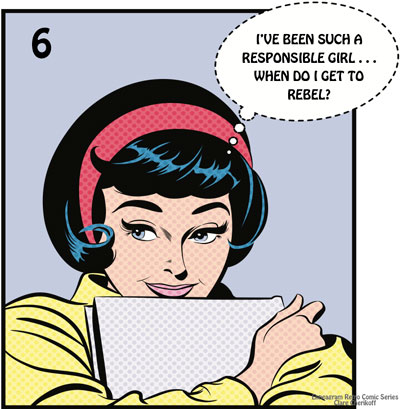
Average Sixes are keenly aware of the dangers, risks, and problems of any situation. They are great at troubleshooting, because they can foresee potential problems. To allay their concerns, they prepare themselves for the future. The first aid kit is packed and the fire extinguisher is regularly serviced. But imagining the worst all the time can lead to a pessimistic attitude and the pent up anxiety can lead to overreacting and catastrophizing. When problems are perceived, they tend to react emotionally and want others to recognize that it is a big deal.

Their underlying anxiety leads to worrying about irrational or unlikely problems - getting into a car accident, getting mugged, being struck by a meteor, etc. While Average Sixes may believe they are simply being vigilant and cautions, others see it as pessimistic, suspicious and paranoid. Average Sixes are fearful and anxious and wonder if their support system will keep them.

Sometimes the high level of anxiety and doubt becomes prolonged, leading to low feelings of confidence. Sixes regain their confidence by taking a tough stance. They become steadfast and stubborn in their ways. They react to apparent threats to their security. They adopt an "us against them" mentality, blaming others (who are not affiliated with the Six) for problems. By "proving" that they are wrong, we are proven right.

At their Worst
If the anxiety Sixes feel continues to increase, they become depressed and feel worthless. They exaggerate their problems and feel persecuted, as if everybody is out to get them.

What leads Sixes down the wrong path is looking for guidance and security outside themselves. Their self-worth and confidence is dependent on others.
At their Best
Healthy Sixes let go of the need to force support from others. They can instead focus on their commitments and responsible work, which automatically pays of in mutually beneficial relationships. They are well disciplined, prudent, and cautious. They do notice the dangers, but understand them in the larger context.
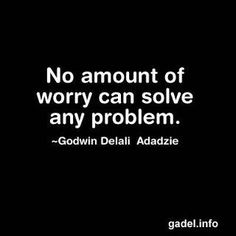
Healthy Sixes are very likeable and seek to build connections with others and systems to create stability. They are very engaging and their emotionally open nature builds strong and trusting relationships. Others look up to Healthy Sixes for guidance and support.

At their best, Sixes let go of the belief that they must rely on someone or something outside themselves for security. They realize that self-confidence starts with the self. Their inner guidance speaks loudly, no longer lost in the noise of anxiety. They are completely self-reliant, courageous and lead others.
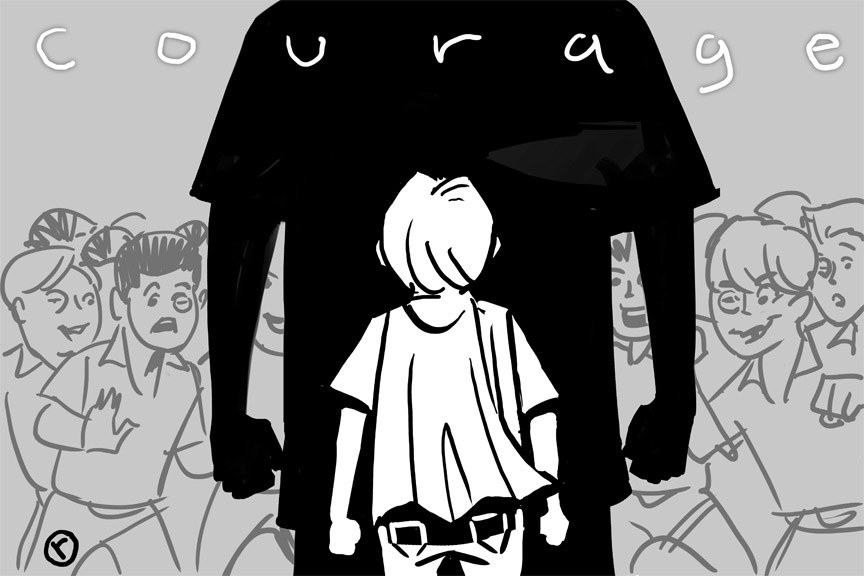
Analysis
Every personality type is "powered" by a different motivation. When "worn lightly," this motivation guides our behaviour through general tendencies and attachments. As this motivation becomes stronger, it becomes increasingly important to see ourselves in a certain way and to ensure that others see us that way, too. To accomplish this goal, we emphasize certain behaviours (and disown others) by playing a role. Sometimes we need to manipulate others or even undermine them to force them to see us as we want to be seen. Unfortunately, the more attached we become to our self-image, the less we see ourselves as we really are.
 |
Motivation
To feel supported and secure |

 |
Attachment
Become attached to values of trust, cooperation, and dedication
Self-Image: “I am a committed, responsible, and dependable person.”
Reject their own inner guidance.
|

 |
Self-Esteem
Feel good about themselves when they have covered all their bases and they do what is expected of them.
Relate to others primarily through cooperation and commitment. |

 |
Role
Plays the role of the Responsible Implementer
Tend to become dependent on something outside the self for guidance |

 |
Manipulation
Manipulate others by testing their loyalty and trust to them. Shadow Issue of Fear arises when Sixes believe that they may be losing their support systems. |

 |
Overcompensation
Undermine others and their support systems by blaming and scapegoating. |
Similarities with other Types

Sixes seek security (like Fives and Sevens)
Read More
|
|
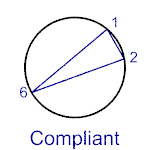
Sixes are compliant to their inner rules (like Ones and Twos)
Read More
|
| |
|
|
|
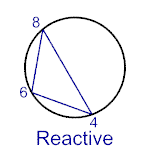
Sixes handle problems with a reactive approach (like Fours and Eights)
Read More |
|
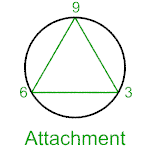
Sixes are attached to the expectations of others (like Threes and Nines)
Read More |
Interviews with Sixes


























